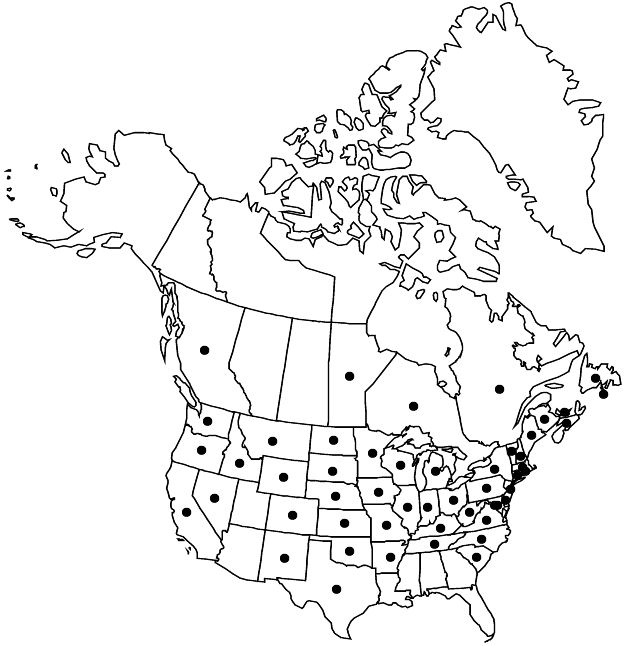Show Lower Taxa
Difference between revisions of "Hypericum perforatum"
Sp. Pl. 2: 785. 1753.
Common names: Common St. John’s wort millepertuis commun
IntroducedWeedy
FNA>Volume Importer |
FNA>Volume Importer |
||
| Line 29: | Line 29: | ||
|distribution=Europe;Asia (sw Arabia;China;India;Mongolia;Siberia);n Africa;also introduced widely elsewhere. | |distribution=Europe;Asia (sw Arabia;China;India;Mongolia;Siberia);n Africa;also introduced widely elsewhere. | ||
|discussion=<p>Subspecies 4 (1 in the flora).</p><!-- | |discussion=<p>Subspecies 4 (1 in the flora).</p><!-- | ||
| − | --><p><i>Hypericum perforatum</i> has been introduced into various parts of the world, including North America, where only < | + | --><p><i>Hypericum perforatum</i> has been introduced into various parts of the world, including North America, where only <i></i>subsp.<i> perforatum</i> is represented. The range of variation in the flora area is less than occurs in Europe, and signs of hybridization that are common there are absent in North America.</p> |
|tables= | |tables= | ||
|references= | |references= | ||
| Line 38: | Line 38: | ||
-->{{#Taxon: | -->{{#Taxon: | ||
name=Hypericum perforatum | name=Hypericum perforatum | ||
| − | |||
|authority=Linnaeus | |authority=Linnaeus | ||
|rank=species | |rank=species | ||
| Line 51: | Line 50: | ||
|publication year=1753 | |publication year=1753 | ||
|special status=Introduced;Weedy | |special status=Introduced;Weedy | ||
| − | |source xml=https://jpend@bitbucket.org/aafc-mbb/fna-data-curation.git/src/ | + | |source xml=https://jpend@bitbucket.org/aafc-mbb/fna-data-curation.git/src/f50eec43f223ca0e34566be0b046453a0960e173/coarse_grained_fna_xml/V6/V6_174.xml |
|genus=Hypericum | |genus=Hypericum | ||
|section=Hypericum sect. Hypericum | |section=Hypericum sect. Hypericum | ||
Revision as of 22:02, 16 December 2019
Distribution

Europe, Asia (sw Arabia, China, India, Mongolia, Siberia), n Africa, also introduced widely elsewhere.
Discussion
Subspecies 4 (1 in the flora).
Hypericum perforatum has been introduced into various parts of the world, including North America, where only subsp. perforatum is represented. The range of variation in the flora area is less than occurs in Europe, and signs of hybridization that are common there are absent in North America.
Selected References
None.